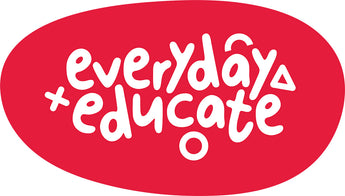Education is one of the most important aspects of our lives. It equips us with the necessary knowledge, skills, and values needed to succeed in life. Therefore, it is essential to build strong foundational skills and a better educational system. In this article, we will discuss the best practices to help build strong foundational skills and better educational systems.
Understanding the Importance of Foundational Skills
Foundational skills are the basic skills that individuals need to develop in order to succeed in their academic and professional lives. These skills include reading, writing, speaking, and problem-solving. A strong foundation in these skills helps students to be more confident and successful in their educational pursuits.
Providing Early Childhood Education
Early childhood education is essential to building strong foundational skills. Children who attend high-quality early education programs are more likely to succeed in school and in life. It is important to provide a stimulating and supportive learning environment for young children to help them develop their cognitive, social, and emotional skills.
Fostering a Positive Learning Environment
Creating a positive learning environment is key to building strong foundational skills. Students learn best when they feel safe, valued, and respected. Teachers and educators should strive to create a learning environment that fosters curiosity, critical thinking, and creativity. A positive learning environment also includes providing students with opportunities to engage in hands-on learning and real-world experiences.
Personalizing Learning
Personalizing learning is a best practice that recognizes that each student is unique and has different learning needs. Personalized learning involves tailoring instruction to the individual needs of students. This approach can help students to be more engaged and motivated in their learning.
Promoting Teacher Professional Development
Teacher professional development is essential to building a better educational system. Teachers need ongoing training and support to keep up with new teaching methods, technologies, and best practices. Providing teachers with professional development opportunities can help them to be more effective in the classroom and better able to meet the needs of their students.
Emphasizing STEM Education
STEM (science, technology, engineering, and mathematics) education is essential to building strong foundational skills in the 21st century. It equips students with the necessary skills and knowledge needed to succeed in the digital age. STEM education should be emphasized from an early age, and students should be provided with opportunities to engage in hands-on learning experiences.
Embracing Technology
Technology can be a powerful tool in building a better educational system. It can be used to personalize learning, provide students with access to educational resources, and enhance the learning experience. It is important to embrace technology in a way that is inclusive and equitable, ensuring that all students have access to the necessary technology and resources.
Providing Access to High-Quality Educational Resources
Access to high-quality educational resources is essential to building strong foundational skills. Students should have access to a wide range of resources, including textbooks, digital resources, and educational technology. It is important to ensure that these resources are up-to-date, relevant, and aligned with the needs of students.
Engaging Parents and the Community
Engaging parents and the community is key to building a better educational system. Parents and community members can provide valuable support and resources to students and teachers. It is important to involve parents and community members in the education process, providing them with opportunities to engage in school activities and events.
Providing Wraparound Services
Wraparound services are essential to building a better educational system. These services include health care, mental health services, and social services. Providing wraparound services can help to address the social and emotional needs of students, ensuring that they are ready and able to learn.
Conclusion
Building strong foundational skills and a better educational system is essential to preparing students for success in life. By understanding the importance of foundational skills, providing early childhood education, fostering a positive learning environment, personalizing learning, promoting teacher professional development, emphasizing STEM education, embracing technology, providing access to high-quality educational resources, engaging parents and the community, and providing wraparound services, we can build a better educational system that meets the needs of all students.
It is important for educators, policymakers, and community members to work together to implement these best practices and create an education system that prepares students for success in the 21st century.
FAQs
- What are foundational skills?
Foundational skills are the basic skills that individuals need to develop in order to succeed in their academic and professional lives. These skills include reading, writing, speaking, and problem-solving.
- Why is early childhood education important?
Early childhood education is important because it helps to build strong foundational skills, providing children with a stimulating and supportive learning environment to help them develop their cognitive, social, and emotional skills.
- What is personalized learning?
Personalized learning is an approach that tailors instruction to the individual needs of students. This approach can help students to be more engaged and motivated in their learning.
- How can technology be used in education?
Technology can be used in education to personalize learning, provide students with access to educational resources, and enhance the learning experience.
- Why is community engagement important in education?
Community engagement is important in education because parents and community members can provide valuable support and resources to students and teachers. Involving them in the education process can help to create a more inclusive and equitable education system.



 Chat with Us
Chat with Us